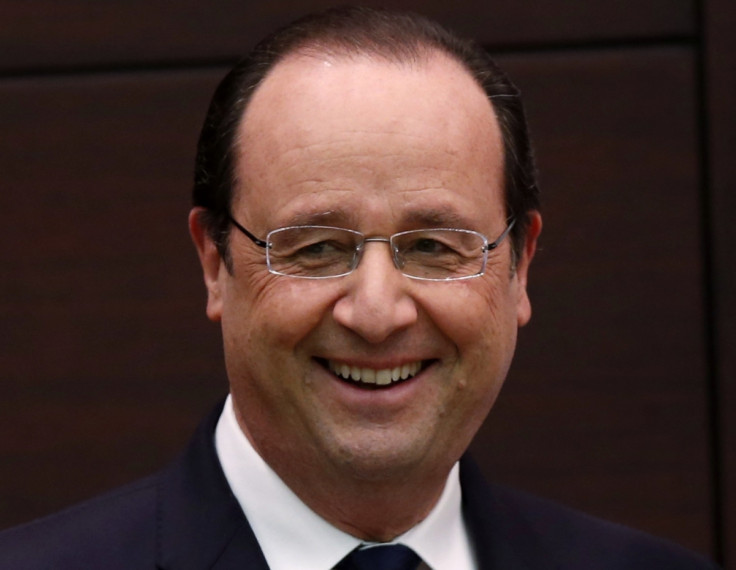French Economy Dodges Recession in Boost for Embattled Francois Hollande

France's troubled economy has dodged another recession in a significant boost for President Francois Hollande.
The French national statistics agency Insee said the economy grew by 0.3% in the fourth quarter and revised up its third quarter reading to flat growth, having previously reported a 0.1% contraction. Across the whole of 2013 the French economy grew by 0.3%.
Household consumption growth picked up pace over the three month period, from 0.1% the quarter before to 0.5%. French exports also recovered, growing by 1.2% in the three months to December after falling by 1.6% in the previous quarter.
Hollande has suffered some of the lowest opinion poll ratings of any French president in modern times. He has been rocked by spiralling unemployment, a weak economy, and a personal scandal involving an alleged affair with an actress.
While other major European economies began tentative recoveries from the eurozone sovereign debt crisis and the global financial meltdown, France gained a reputation as the "sick man of Europe" for its constant weakness.
The unemployment rate in France hit a record high in December of 11.1%, a monthly rise of 0.3%. Its labour market is uncompetitive, bogged down by the bureaucracy contained in its 3,200 page book of employment rules, though the government is attempting reform.
In January, Hollande said he would slash a further €50bn from France's public spending by 2017.
He also said he would shave €30bn off of French firms' tax bills by no longer requiring them to fund family welfare in the hope that more jobs will be created by the money employers save.
"We must do everything for employment. This is my priority," Hollande told reporters at a Paris press conference.
French public debt is forecast to hit 95.1% as a portion of GDP in 2014. Just servicing the debt will cost €46.7bn a year. Its deficit is equivalent to 4.1% of GDP, higher than the Maastricht Treaty's 3% standard.
France is the eurozone's second-largest economy, smaller than Germany in first place and bigger than Italy in third.
© Copyright IBTimes 2024. All rights reserved.






